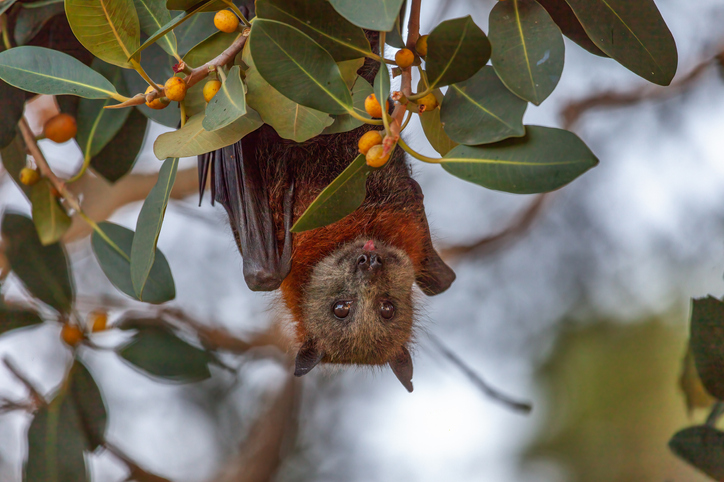To protect fruit bats, ACT Wildlife has launched a new program, supported by the ACT Government, to replace fruit netting with wildlife safe options for free.
The net replacement program is designed to support a transition to wildlife safe netting ahead of a proposed amendment to the Nature Conservation Act 2014 that will ban the use of unsafe netting in the ACT.
All through September and October, ACT residents who bring in old unsafe netting to the ACT Wildlife office in Dairy Road Fyshwick can swap it for better netting – or alternatives such as sleeves and bags – for no charge.
The dates for the net swaps are:
- Every Saturday in September & October, 10am – 3pm
- Thursday 7th and 28 September, 11am – 2pm
- Wednesday 4th & 11th October, 11am – 2pm
- Sunday 8th October, 11am-2pm
“This is a great opportunity for the Canberra community to replace their old large mesh netting for free and help our wildlife from becoming badly entangled, sometimes fatally,” said Yana del Valle, President of ACT Wildlife.
“Netting is a popular method of protecting fruit trees from being a bite to eat for native animals like birds and bats, but it can entangle threatened native wildlife if the mesh size is too large, or it is not installed correctly,” environment minister Rebecca Vassarotti said.
“ACT Wildlife are regularly called upon to rescue wildlife such as grey-headed flying-foxes, among other species, from netting in urban backyards.
“Grey-headed flying-foxes are vulnerable to extinction in the ACT and naturally become distressed when entangled, causing serious injuries or even death before help can arrive.
“The ACT is facing an extinction crisis. In a crisis, you need to do everything you can to protect native wildlife from population decline.
“This is a small change that will make a big difference to the lives of fruit bats and other wildlife in the ACT. When our natural environment is in sharp decline, these small changes can add up to make a big difference.
“The replacement netting will be completely free, giving everyone the opportunity to make the change to netting friendly to our native wildlife and their fruiting plants.”
Fruit netting should have a mesh size of 5mm x 5mm or smaller, with no gaps for wildlife to enter from the ground or sky. If your finger can fit through the mesh, it is unsafe. When nets have holes larger than 5mm, animals foraging for fruit can be trapped and entangled, leading to serious injury or deat. Animals most likely to suffer are fruit bats, birds, possums, lizards, and snakes.
“Seeing the harm these nets cause is heartbreaking for wildlife rescue volunteers,” Clare Wynter, ACT Wildlife’s flying foxes co-ordinator, said.
“Backyard fruit trees can be protected with far less chance of harming wildlife simply by using nets with holes smaller than you can put a finger through. These kinds of nets are better for both fruit trees and wild animals.
“ACT Wildlife is delighted that the ACT government has supported it to deliver a free net swapping program where households can exchange their unsafe netting for safer alternatives.”
Find out more about the pop-up events and how to replace your nets on the ACT Wildlife website.
Or contact: ACT Wildlife net swap manager, Clare Wynter, on 0412 227 655; or ACT Wildlife President Yana del Valle, on 0402 207 249.
Find out more about wildlife safe fruit-tree netting on the ACT Government Environment website.
If you come across entangled wildlife, please don’t try to release animals yourself. Call Access Canberra on 13 22 81 to arrange a safe rescue with a qualified wildlife handler.



